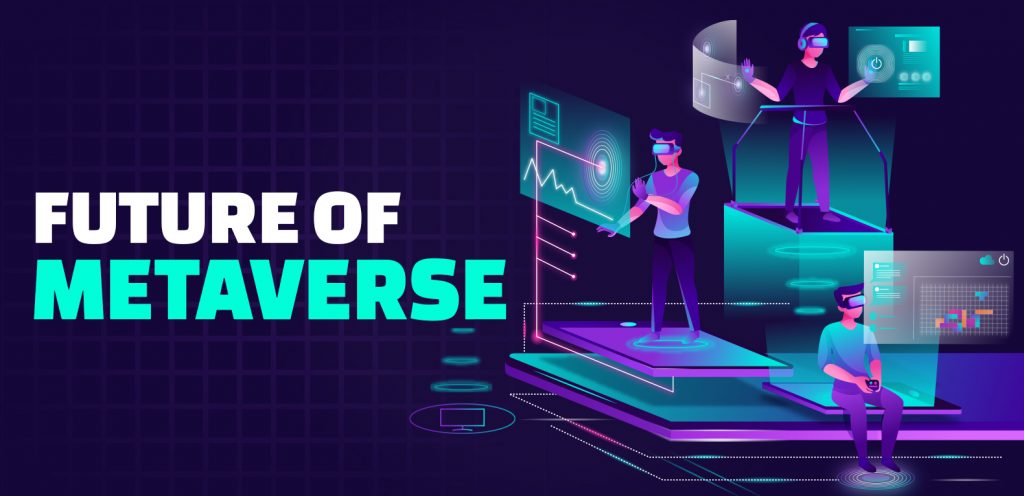The term metaverse future tech has quickly become one of the most talked-about trends in the world of technology and digital transformation. It refers to a collective virtual shared space where users interact with digital environments and each other through advanced technologies such as Virtual Reality (VR), Augmented Reality (AR), Artificial Intelligence (AI), blockchain, and 3D simulation. Many believe that the metaverse will change how we work, learn, shop, socialize, and entertain ourselves. This article explores what this future looks like and how the world is preparing for the next big digital shift.
Understanding the Concept Behind Metaverse Future Tech
The concept of this isn’t new. It first appeared in science fiction literature, but now it has evolved into an actual technological project led by major companies. The metaverse future tech aims to provide a seamless digital world where physical and virtual realities are merged. Think of it as the next generation of the internet—one you don’t just view, but actually enter and experience.
Key Technologies Powering the Metaverse
- Virtual Reality (VR)
Creates entirely digital environments users can interact with. - Augmented Reality (AR)
Blends real-world surroundings with digital information. - Artificial Intelligence (AI)
Powers intelligent avatars, environments, and decision-making. - Blockchain & NFTs
Ensures ownership, identity, and digital economy systems. - 3D Graphics and Simulation Engines
Helps build realistic and interactive virtual spaces.
How Metaverse Future Tech Will Transform Daily Life
This is not just a gaming world. It is expected to influence many industries and everyday tasks.
1. Social Communication
Instead of texting or video calling, people will meet in virtual cafés, parks, and private rooms with customizable avatars.
2. Education and Learning
Students can attend virtual classrooms, conduct 3D experiments, or take field trips to ancient civilizations—all without leaving home.
3. Entertainment and Gaming
Gaming is already leading metaverse development. Players interact and build universes in real time. Think of games evolving into entire digital societies.
4. Work and Business Collaboration
Companies will shift remote work from video meetings to virtual offices where employees collaborate in immersive workspaces.
5. Shopping and Digital Commerce
Users can try on clothes virtually, test digital items in real environments, and buy real or digital products instantly.
Metaverse Future Tech and Global Economy
The will introduce new business models and economic systems. Digital land, virtual property, NFT-based ownership, and crypto transactions will grow rapidly. Brands will operate digital outlets, host events, and sell exclusive experiences. Job opportunities will appear for:
- Virtual architects
- Digital fashion designers
- Metaverse security experts
- Virtual event planners
- 3D environment developers
The digital economy may soon become as important as the real-world economy.
Challenges in the Growth of Metaverse Future Tech
Despite the excitement, some challenges need attention:
Privacy and Security
Identity theft, data misuse, and cybercrime can become more complex.
High Cost of Technology
VR headsets and advanced devices are still expensive for many people.
Health and Addiction Issues
Spending too much time in virtual environments can affect physical and mental health.
Digital Divide
Only people with strong internet and modern devices can access the environments, potentially widening inequality.
The Future of Metaverse: What to Expect Next
It is still developing, but progress is accelerating. In the near future:
- Virtual concerts and large-scale events will become mainstream.
- Remote work will shift from Zoom calls to fully immersive offices.
- Digital currency and NFT markets will expand further.
- Education systems will adopt VR-based classrooms.
Eventually, the metaverse future tech may become as common as smartphones and social media are today.
Conclusion
This represents the next phase of digital evolution. It blends real and virtual experiences to create limitless possibilities for communication, business, learning, entertainment, and lifestyle. While challenges exist, innovation continues at a fast pace. It isn’t just a concept—it is a growing reality that will soon become part of our everyday lives.
.

